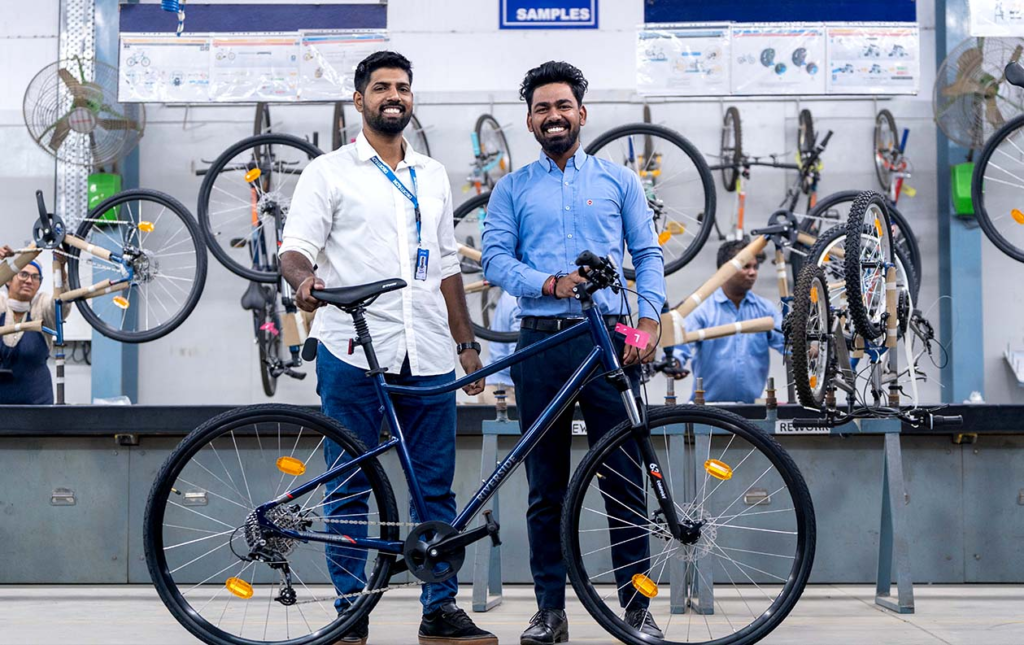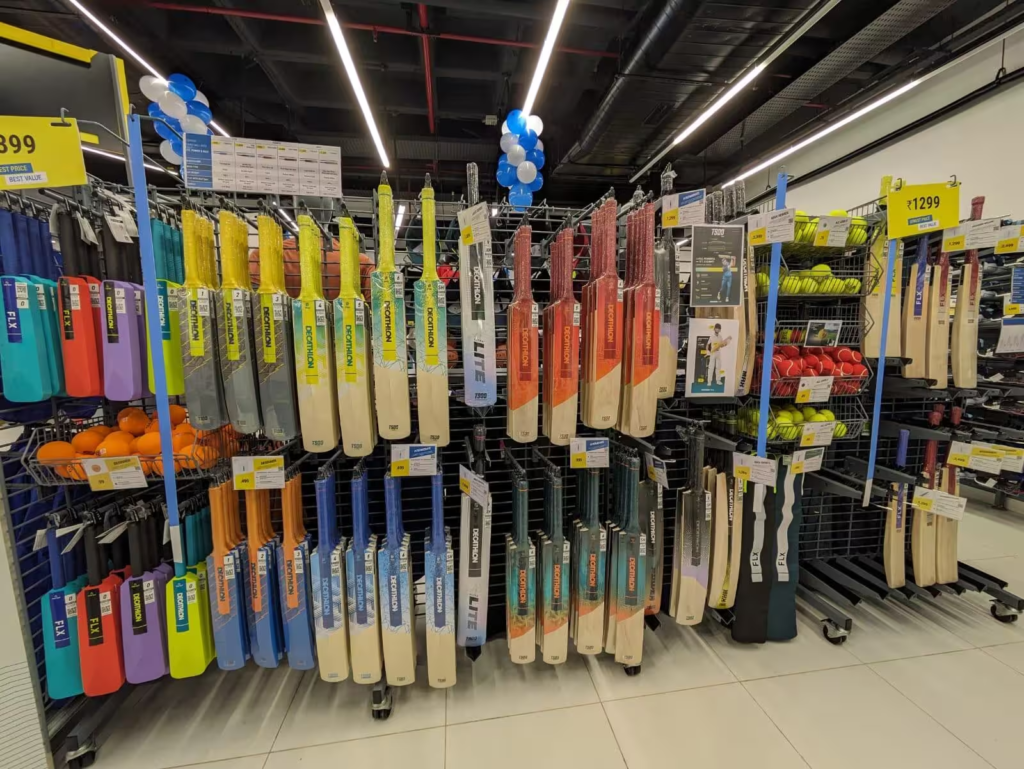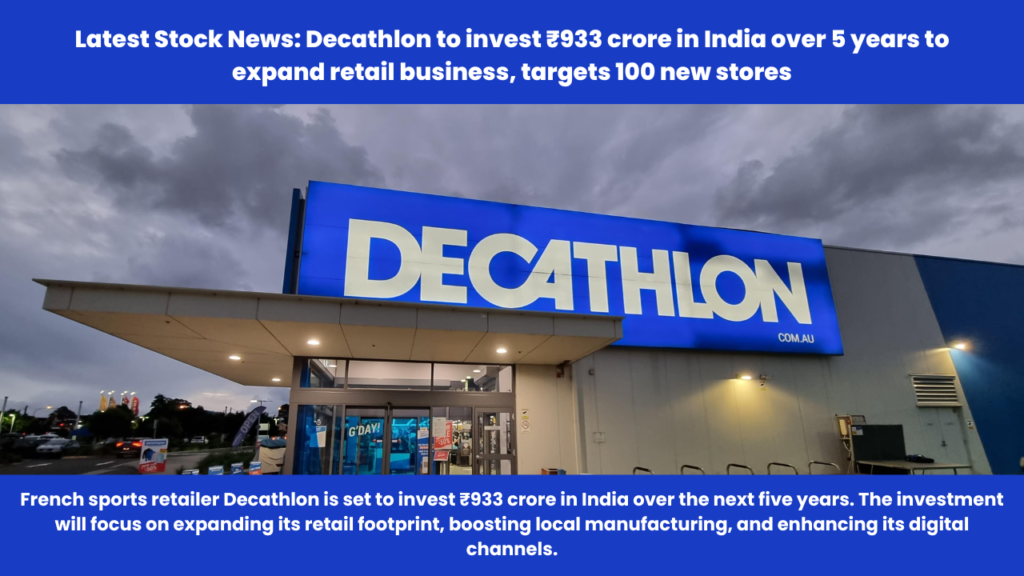French sports retailer Decathlon plans to invest €100 million (approximately ₹933 crore) in India over the next five years, the company announced. The investment will be directed toward expanding its retail presence and manufacturing operations in one of its fastest-growing markets, PTI reported.

Decathlon India CEO Sankar Chatterjee expressed confidence in the company’s growth, stating that the business is expected to double within the next three to five years. As part of its expansion strategy, Decathlon aims to increase its network to 190 stores, up from the current 90, over the next five years, as per the report.

A portion of the investment will also enhance Decathlon’s digital channels, aligning with the company’s omnichannel approach.

In addition to retail expansion, Decathlon plans to boost its manufacturing operations in India and increase local sourcing for both the domestic market and global operations. Currently, 68% of the products sold in India are locally produced, and 8% of Decathlon’s global product range is sourced from India.

“We are aiming to take the domestic manufacturing for Decathlon India to 85 per cent by 2026,” Chatterjee said.

The company also plans to open 10-15 new stores each year, accelerate online sales, and increase local sourcing as part of its expansion plans.
Steve Dykes, Decathlon’s Global Chief Retail and Countries Officer, emphasised the importance the company attaches to the country. “India is a unique and exciting market with numerous opportunities. We have commitments to accelerate our efforts in India to make a societal impact to inspire more and more Indians to play,” he said.

Dykes added that Decathlon will explore new sales channels, including B2B, to broaden its impact. “We see potential for India to play a larger role in Decathlon’s research and design processes. Over 2 million people globally are engaged in sports activities through the Decathlon app, and we are committed to developing future talent from India,” he stated.

In March, Decathlon identified India as a “big priority” market and projected it to be among its top five global markets within five years.


